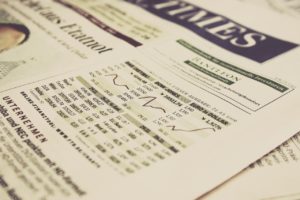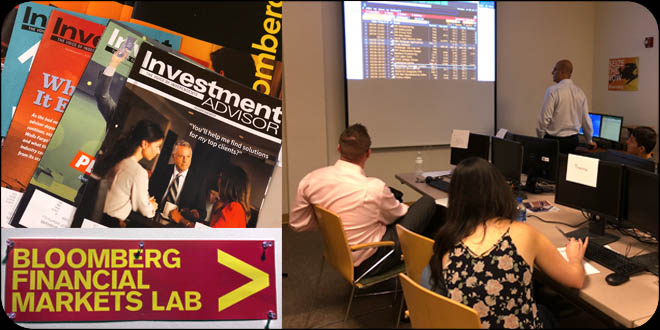By Dr. Don Capener
China’s economy will impact U.S. retirement savings. But could it also impact a company’s bottom line?
Are you starting or growing a company, or worried about your 401K and other investments? Do you not fully understand the growing interdependence of China’s economy in relation to the U.S. economy? If you’re nodding your head as you read this, know that you are not alone.
My fascination with the increasing interdependence of today’s markets has only continued as hype about Chinese purchases of U.S. Treasuries and the reportedly imminent demise of the Chinese economy continues to show up in headlines.

China is a major factor in today’s world economy, and that goes without saying. Home to 1.4 billion people, it is a complicated economic enigma. As the oldest state in the world, China’s geographic core has been governed almost continuously by a rationalist bureaucracy since the late sixth century. Although state communism is the current ruling party, China’s state religion is often said to be economic growth.
Since 2010, when China became the second largest economy in the world, its growth rate has moderated to around 6.5 percent annually. To put that in perspective, our U.S. economy is considered very healthy at three percent growth year over year.
The International Monetary Fund recently predicted that China’s economy will remain robust for the foreseeable future, precisely because of its government’s economic policies. A better understanding of our global economy and how China can be a factor are worthy considerations when planning investment strategies.
Five Factors to Consider
- Volatility will continue. Future volatility in the stock market is exacerbated when the U.S. threatens to ratchet up current trade tensions, or when China does a surprise devaluation of its own currency, as occured in 2017. Most economic forecasters predicted China’s economy slowing, but the devaluation of the Yuan was a red flag that China’s investors don’t believe that national annual growth rates of seven percent can continue. In retrospect, China’s 2015 economic slowdown may have been far worse than realized by U.S. and European markets. As the world’s second-largest economy, global investors are increasingly fearful that a faltering Chinese economy could pull down much of the world’s “bottom line” in by 2020.
- Review global impact to date. August 24, 2015, world economies experienced the biggest scare in recent memory. That day marked the worst point-drop for stocks since October 2008, during the height of the Great Recession, earning the moniker “Black Monday.” The Dow Jones Industrial Average shed over 1,000 points in early trading that same day. But compared to the 40 percent dip experienced by Chinese investors on that day, U.S. portfolios easily recovered.
- Stocks are not for the faint of heart. Consider diversifying into real estate, fixed income products, or simple money market accounts. The panic that ensued in 2015 was nowhere close to the drop in U.S. markets in 1987. Panic selling occurred in 2015, but the Dow tumbled a whopping 22.6 percent on October 19, 1987. If 2015 had been a true Black Monday, like what happened in 1987, the Dow would have fallen over 3,700 points.
- Stocks have gained 200 percent since. From a historical perspective, consider that the average investor made great returns for remaining in the stock market continuously since 2011. The nature of stock market investing is high risk. Stocks go up over time, but not without long periods of volatility and potential loss.
- Oil above $80 scares Chinese investors. Yes, Americans love to save money at the pump. However, Chinese investors get nervous when oil prices rise. Low gas prices hurt the U.S. financial outlook and other countries that depend heavily on profits from selling oil. China does not have the same worry, but as prices increase, they fear becoming less competitive as theat nation spends a larger and larger share of resources to import oil and gas.
 So, does China’s economy impact your bottom line?
So, does China’s economy impact your bottom line?
Yes. China’s interdependence with the U.S. economy will grow, not diminish. To maintain higher investment returns or avoid volatility, seek advice from a financial professional. As the Trump administration navigates foreign trade policy, don’t ignore the impact the Chinese economy can have on future investment strategy, especially as you look at individual stocks such as Apple, Caterpillar, or Boeing.
With stocks and other highly volatile investments, there is an upside to diversifying into global investments, but always a risk of losing a sizable portion of your principal. Learn more about China and other U.S. trading partners before taking sides in policy decisions surrounding the trade war. It’s not as simple as it appears.

MARKET LIFE is a recurring feature in WAVE, a dedicated news source at Jacksonville University. Email commentary and questions about market and money matters to Dr. Don Capener, Dean of the Davis College of Business at Jacksonville University, at dcapene@ju.edu. Or read the latest from Dean Capener’s desk on LinkedIn.
 Wave Magazine Online Jacksonville University News Hub
Wave Magazine Online Jacksonville University News Hub



